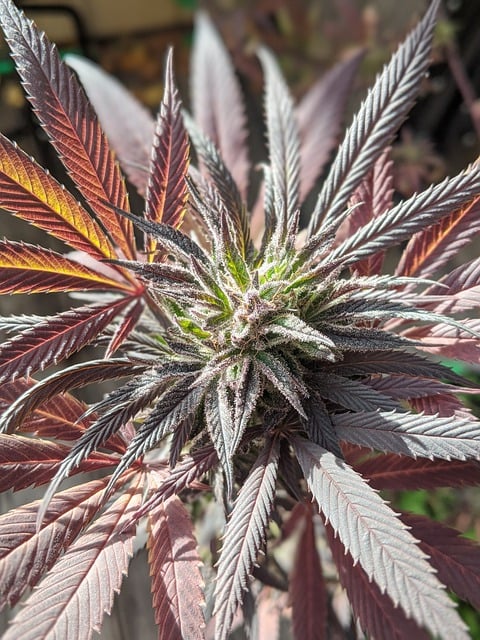Δ9-Tetrahydrocannabinolic Acid (THCA) is a non-psychoactive cannabinoid that's gaining attention in the European Union due to its potential health benefits and distinct legal status across EU countries. The legality of THCA products, which include flowers with less than 0.2% THC on a dry weight basis, varies within the EU, with each country having specific regulations based on hemp and cannabis thresholds. These products fall under the European Union's Novel Food Regulation, requiring assessment and approval to be legally sold. THCA itself does not induce intoxication but is being explored for its therapeutic effects, making it a subject of interest in wellness and medical sectors. Navigating the legal landscape for THCA cultivation and use requires careful adherence to local laws and an understanding of the evolving regulatory environment, which can significantly differ from one EU country to another. Growers and businesses must stay informed to ensure compliance with these regulations, as non-compliance could lead to legal consequences. The THCA legal status in the EU is a dynamic field that necessitates continuous monitoring for those involved in the cannabis industry.
Explore the intricacies of THCA (Tetrahydrocannabinolic Acid), a non-psychoactive precursor to THC, through a detailed lens. This article provides an in-depth analysis of the THCA flower, its chemical makeup, and the transformative effects of decarboxylation. We delve into the differences between THCA and THC, the emerging legal landscape for THCA in various EU countries, and the cultivation methods that optimize THCA yields. The article also examines the entourage effect, medicinal properties, and consumption methods of THCA, along with its safety profile and side effects. It navigates the complex regulatory environment surrounding THCA in Europe, offering insights into preserving its potency through proper storage, understanding consumer trends, and assessing the economic implications for EU agriculture post-legalization. Join us as we explore the future prospects of THCA research and development within the continent.
- THCA Flower: A Comprehensive Overview
- The Chemical Structure of THCA and Its Significance
- THCA vs. THC: Understanding the Differences
- The Emergence of THCA in the EU Market: Legal Status Across Countries
- Cultivation Practices for Optimal THCA Flower Yields
THCA Flower: A Comprehensive Overview
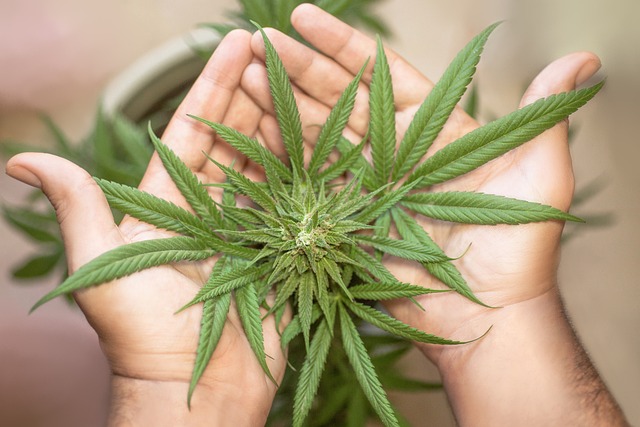
Delta-9-tetrahydrocannabinolic acid (THCA) flower has garnered significant attention within the cannabis community and beyond, particularly in light of its potential legal status in European Union countries. THCA, the raw and natural form of the well-known psychoactive compound THC, exists in hemp and cannabis plants. It’s a non-psychoactive cannabinoid that transforms into THC when exposed to heat, such as during the smoking or vaping process. This precursor cannabinoid is gaining traction for its potential wellness benefits and is the subject of ongoing research.
In many EU countries, there is a growing dialogue around the legal status of THCA flower. The legality often hinges on the specific legal definitions of hemp and cannabis within each country’s legislative framework. For instance, in countries where the THC content is regulated to be below 0.2% in hemp varieties, THCA flower may be considered legal provided it adheres to these threshold limits. The EU’s Novel Food Regulation also plays a role in determining the legality of THCA products, as they must meet the criteria set forth for novel foods before they can be legally marketed and consumed within the EU. As such, consumers and businesses in EU countries are advised to stay informed about the evolving regulations surrounding THCA flower to ensure compliance with local laws.
The Chemical Structure of THCA and Its Significance
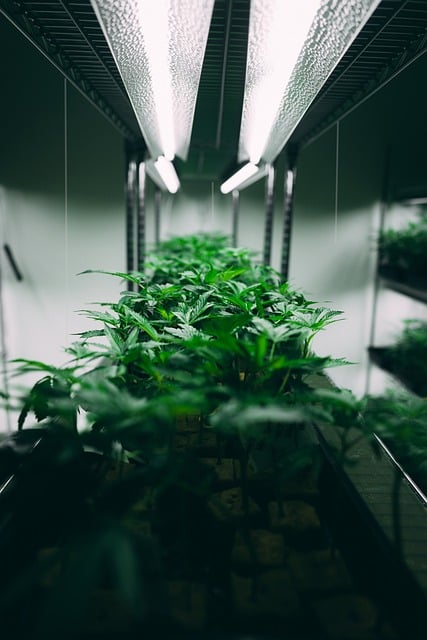
Delta-9-tetrahydrocannabinolic acid (THCA) is the non-psychoactive precursor to the well-known psychoactive cannabinoid delta-9-tetrahydrocannabinol (THC). The chemical structure of THCA consists of a pentacyclic ring system with an additional carboxyl group (-COOH) attached to the ninth carbon atom, distinguishing it from THC which results from the decarboxylation of THCA upon heating. This carboxyl group plays a crucial role in the molecular interactions within the endocannabinoid system of the body. The presence of this group in THCA affects its binding affinity to cannabinoid receptors, influencing its pharmacological effects, which are notably different from those of THC.
The legal status of THCA-rich products varies across EU countries, with some permitting the sale and use of THCA flowers under specific conditions that often include a THC content threshold. It’s pertinent to note that THCA itself is not intoxicating; however, its potential therapeutic properties have garnered attention in the wellness and medical communities. The legality of THCA flowers hinges on the concentration of THC they contain; products with trace amounts of THC may be legal, whereas those with higher levels may fall under narcotics regulations. This nuanced distinction highlights the importance of understanding the local laws and regulations regarding cannabis derivatives, as they can differ significantly from one EU country to another. The chemical structure of THCA thus has significant implications for both the potential benefits it may offer and its legal classification in various jurisdictions within the European Union.
THCA vs. THC: Understanding the Differences
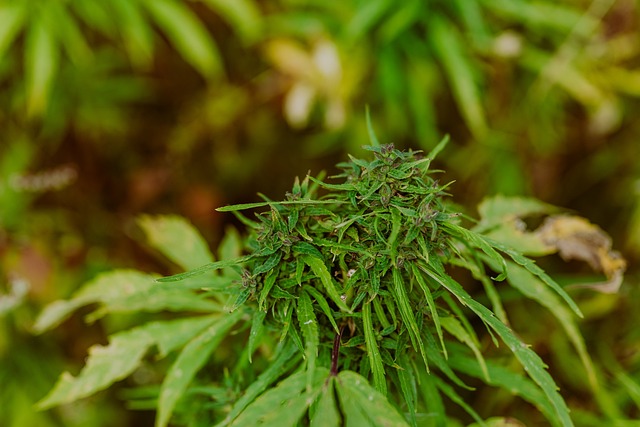
THCA, or tetrahydrocannabinolic acid, is the raw, non-psychoactive precursor to THC, the psychoactive compound found in cannabis that is well-known for its mind-altering effects. As cannabis legislation evolves, products containing THCA are gaining attention and becoming more accessible in certain EU countries where cannabis regulations permit such substances. Unlike THC, which is created when heat is applied to THCA through a decarboxylation process, THCA exists naturally in raw cannabis flowers and extracts. The distinction between these two compounds is significant not only in terms of their legal status but also in their potential effects on the body.
Research suggests that THCA may offer therapeutic benefits without the psychoactive side effects associated with THC, making it an object of interest for individuals seeking medicinal properties without the ‘high’. Studies have indicated that THCA could exhibit anti-inflammatory and neuroprotective qualities, which are being explored for a range of potential applications. In contrast, THC is known for its pain-relieving, euphoric effects, and its ability to stimulate appetite. The legal landscape in EU countries varies, with some nations allowing the use of THCA-rich products for medicinal purposes or adult recreational use, while others maintain strict regulations or prohibitions. As such, the nuances between THCA and THC are not only scientifically intriguing but also legally relevant within the evolving cannabis marketplace in Europe.
The Emergence of THCA in the EU Market: Legal Status Across Countries
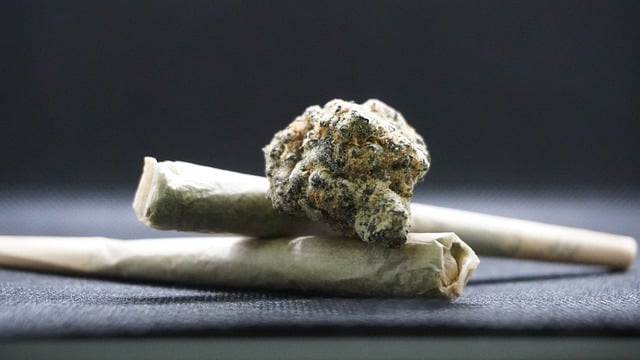
The emergence of THCA (Tetrahydrocannabinolic Acid) in the European Union market represents a significant shift in the regulatory landscape of cannabis-related products. Unlike its psychoactive counterpart, Delta-9-THC, THCA remains non-psychoactive and is gaining attention for its potential therapeutic properties. As of the current understanding of EU regulations, THCA is legal within the EU, provided it contains less than 0.2% Delta-9-THC on a dry weight basis, aligning with the broader EU rules on cannabis and related products. However, the legal status of THCA varies across EU countries, with member states implementing different interpretations and regulations concerning its sale, possession, and use.
Navigating the legalities of THCA within the EU involves a nuanced understanding of each country’s specific laws. For instance, some countries have more lenient policies towards cannabinoids that do not induce psychoactive effects, allowing for the legal cultivation, research, and sale of products containing THCA. Conversely, others may impose stricter controls, reflecting a cautious approach to non-psychoactive cannabinoids until further scientific evidence is available. The regulatory framework is subject to change as the European Commission continues to evaluate the benefits and risks associated with these compounds. It is imperative for businesses and consumers alike to stay informed about the evolving legal status of THCA in each EU country, as non-compliance can lead to legal repercussions. The dynamic nature of the regulations underscores the importance of due diligence and legal counsel for anyone involved in the production, distribution, or consumption of THCA products within the EU market.
Cultivation Practices for Optimal THCA Flower Yields
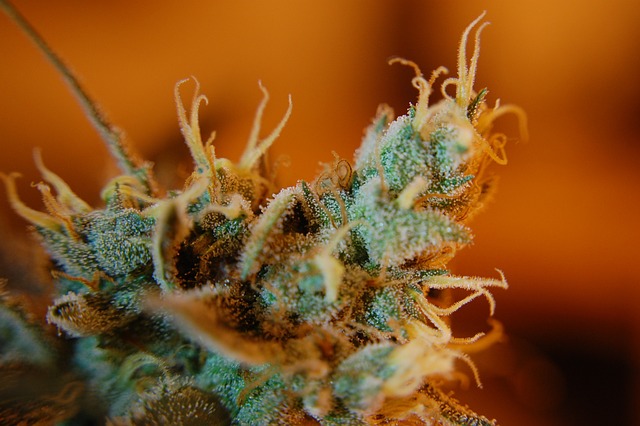
Cultivating THCA-rich flowers requires a meticulous approach, particularly considering the legal status of THCA in EU countries. THCA, or Tetrahydrocannabinolic Acid, is the precursor to THC, the psychoactive component found in cannabis. As such, the cultivation of THCA-rich flowers must adhere to stringent legal frameworks that vary across member states. In EU countries where cannabis cultivation for research or medical purposes is legal, growers should focus on optimization techniques to enhance yield without compromising quality.
Optimal yields of THCA flower begin with selecting the right strain, as some are genetically predisposed to higher THCA concentrations. Ideal soil composition and pH levels are crucial for nutrient uptake and root health. Regular monitoring and adjustment of soil conditions prevent deficiencies or toxicities that could stunt plant growth. Additionally, controlling the environment is key; maintaining a balanced temperature and humidity, along with strategic lighting to extend the photoperiod, can stimulate flowering and increase THCA production. Hydroponic or aeroponic systems, when properly managed, can also yield high concentrations of THCA, as they provide a controlled, nutrient-rich environment that avoids soil-borne pathogens and optimizes resource availability. In all cases, adherence to local regulations is paramount, ensuring compliance with the evolving legal landscape for THCA in EU countries. Growers must stay informed on the latest regulatory changes to navigate this complex field successfully.
THCA-rich flowers have garnered significant attention within the cannabis community, offering a unique perspective on the potential therapeutic properties of cannabinoids. This article has delved into the intricate chemical structure of THCA, highlighting its distinctiveness from its psychoactive counterpart, THC. We’ve explored the emerging landscape of THCA in the European Union market, noting the varying legal statuses across different countries, which is a critical consideration for enthusiasts and entrepreneurs alike. Furthermore, the cultivation practices essential for maximizing THCA flower yields have been outlined, ensuring an informed approach to this burgeoning field. As the regulatory environment continues to evolve, interest in THCA as a legal alternative within many EU countries is poised to grow, marking a new era in the cannabinoid revolution.
